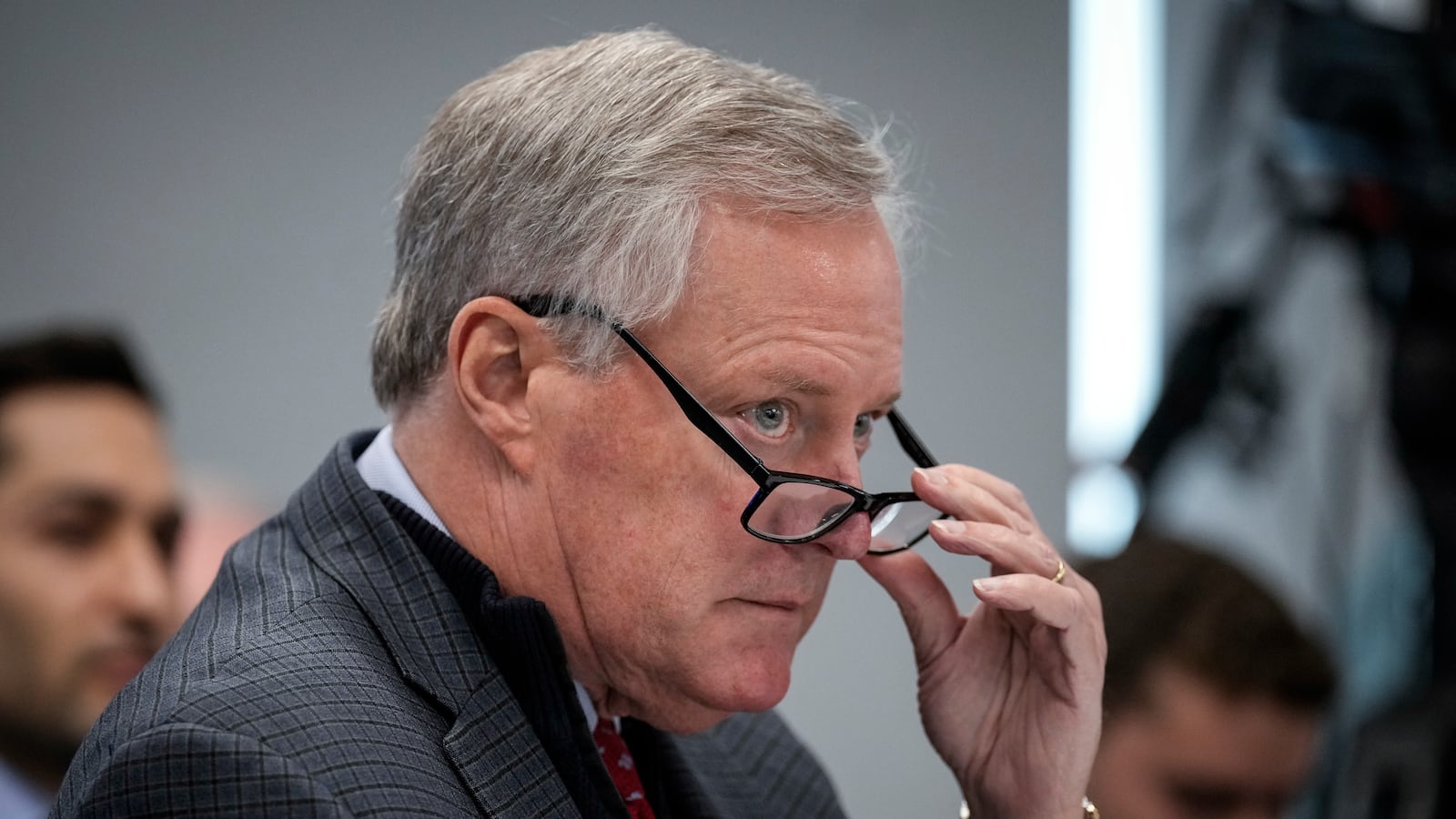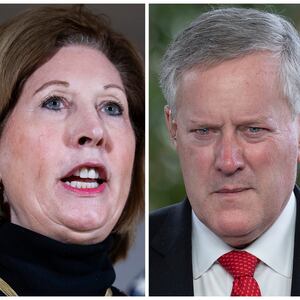A federal appeals court on Monday rejected an attempt by Mark Meadows to move an election interference case against him from Georgia to federal court, ruling that Meadows, Donald Trump’s one-time White House chief of staff, had not demonstrated that his alleged criminal conduct was related to his duties under the former president.
The three-judge panel on the 11th Circuit Court of Appeals ruled unanimously to uphold a lower court opinion from September. The panel wrote witheringly in its 47-page opinion, authored by a Bush-appointed conservative judge, that the federal removal statute that Meadows’ lawyers had been attempting to invoke “does not apply to former federal officers.”
What’s more, Chief Judge William Pryor added, even if it did, Meadows’ “participation in an alleged conspiracy to overturn a presidential election was not related to his official duties.”
“At bottom,” Pryor wrote, “whatever the chief of staff’s role with respect to state election administration, that role does not include altering valid election results in favor of a particular candidate.”
The decision comes just three days after the panel heard oral arguments in the transfer request. It marks the end of Meadows’ bid to get his case kicked out of Georgia state court, unless he appeals the decision to the Supreme Court and it agrees to hear the case.
An attorney for Meadows did not immediately respond to a request for comment on Monday night.
Meadows was indicted alongside his former boss and 17 others in August on charges they illegally conspired to keep Trump in power after the 2020 presidential election by reversing his loss in Georgia. Meadows, who has pleaded not guilty, is facing one count of violating a state racketeering law and one count of solicitation of violation of oath by a public officer.
A key issue for the ex-chief of staff has been over his role in a notorious January 2021 phone call where Trump asked Brad Raffensperger, the Georgia secretary of state, to “find” more than 10,000 votes in his favor. Meadows has argued his presence on the call was under the purview of his duties as chief of staff. Prosecutors—and, thus far, the courts—have disagreed.
He was the first of an eventual five defendants caught up in the sweeping indictment to attempt to get his case removed to federal court. The day after the indictment was handed down, Meadows filed a motion arguing he was immune from state prosecution. Less than a month later, a judge rejected his request, finding that Meadows had failed to meet the “quite low” threshold for removal.
Meadows immediately appealed to the 11th Circuit Court of Appeals.







